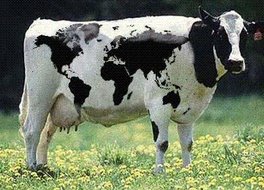Why do we subsidize farmers?
Before any farmers find this and throw a fit, I'd like to say that I'm not really sure and I would like an answer. Is it because we want to hang on to our history by keeping people on the farm? Or is it because, in our history, we've 'always' done it. Or is it not historical at all?
The reason I ask is that our subsidies are a major driving force in world hunger. Not just our subsidies, but all subsidies. Remember how the best way to prevent or end hunger is to increase incomes? Well, it's kind of hard to do when our government keeps farm incomes above what the market will sustain. Yes, I know that US farmers are struggling to make ends meet, but even that income level is higher than can really be supported by global trade. We're pricing the low-income countries out of business.
Some might say, hey, our surplus grain is donated to those hungry people! Why should they complain if they're still getting fed? Yes, we send surplus grain grown by US farmers as part of our official hunger relief packages. We send it in ships owned by US companies. We distribute it from warehouses owned and operated by US citizens. We are very generous. Meanwhile, that free grain drives down the price of local grain even more, putting more farmers out of business, increasing poverty and hunger, and kickstarting another vicious cycle.
I'm not saying that all food aid is bad, but it's not quite as altruistic as one might think. When you hear that we're helping the hungry by sending them our surplus, ask why we have a surplus. It could be that we helped create the hunger situation we're now helping to solve.
Thursday, March 01, 2007
Subscribe to:
Post Comments (Atom)

3 comments:
Becky,
In part we subsidise farmers because we have a cheap food policy. In order to keep the supply of food greater than the demand in the USA, and therefor low priced, we subsidise farmers so that they will over produce. The US farmer is the most efficient in the world. If the food supply isn't grown here, is it logical to believe that the rest of the world will make up for the drop in production?
Mom
In many cases, the places to which we are shipping our surplus have farmers that are growing food. If not, there are often neighboring countries with a surplus. The problem is that, rather than giving aid as money and allowing people to source their food locally, we are tying our aid to our surplus. When our food floods the market, it drives farmers out of business. Yes, they can keep up with the production in all but the most extreme cases.
Becky- your mom gave me the link and so here I am- I am facinated by your interest in food, corn, ethenol, hunger and etc. Seems like a good Lent discussion-
You are right- we shouldn't ever give food away. Abundance is a good thing- and nature and agriculture has always been about abundance- more milk than the calf can drink, more apple than those apple tree seeds will ever use- and we should be finding ways to make those products go further and offer them on the global market at global prices. We subsidize farmers because agriculture is bigger than just food. It is rural growth,conservation, envorimental concerns, and it has military significance. Ab Lincoln established the USDA to protect our agriculture and ensure that their will always be a domestic food supply. (Too bad ol' Ab didn't see gasoline coming...)
I don't think inequality is a bad thing. Invention, success, achievment are all bred from deep need- and such need cannot be brought without inequality. SOme will say that we haven't had a good invention in this country is 100 years because we live in such need-less times. I would argue that our Mother Invention threw the baby nessesity out with the bathwater. We have gotten grossly out-of-touch with need. I hope we always continue a persuit for better, higher, stronger.I hope we don't ever make hardship obsolete. For in hardship, our faith is made strong. - Margie
Post a Comment